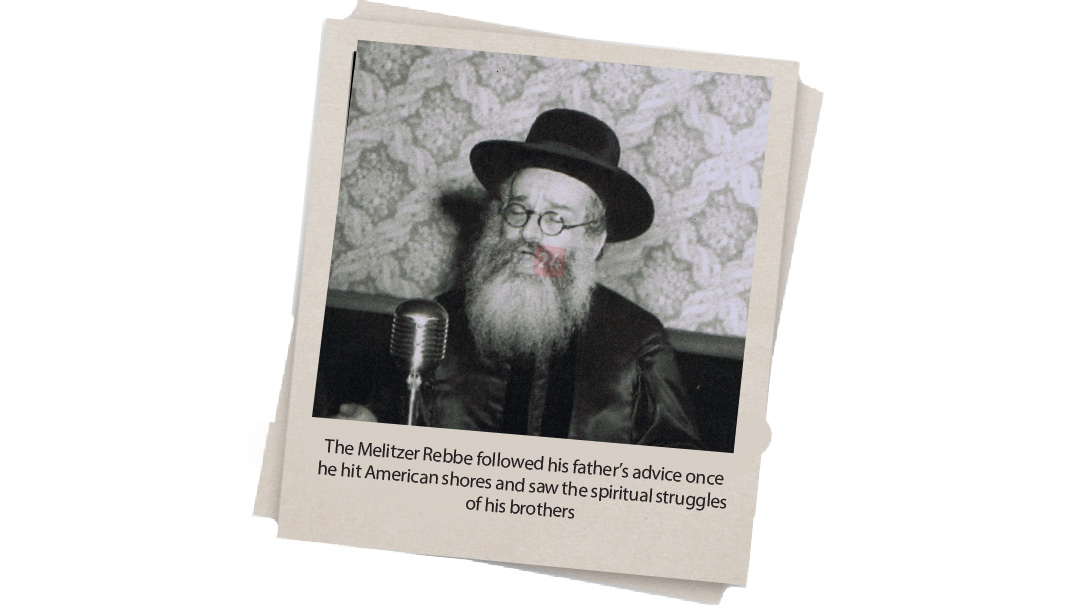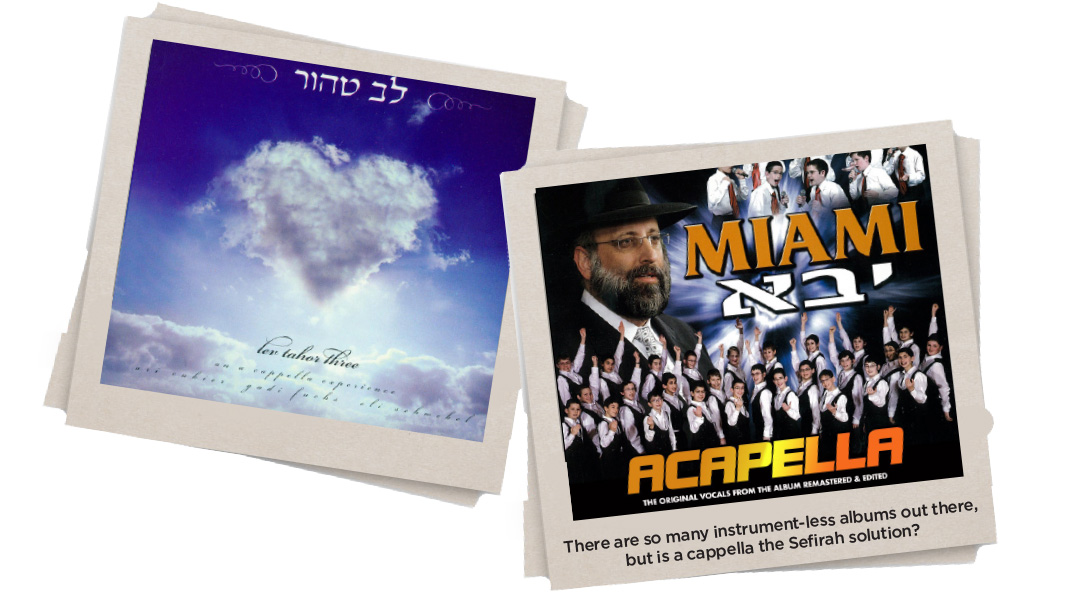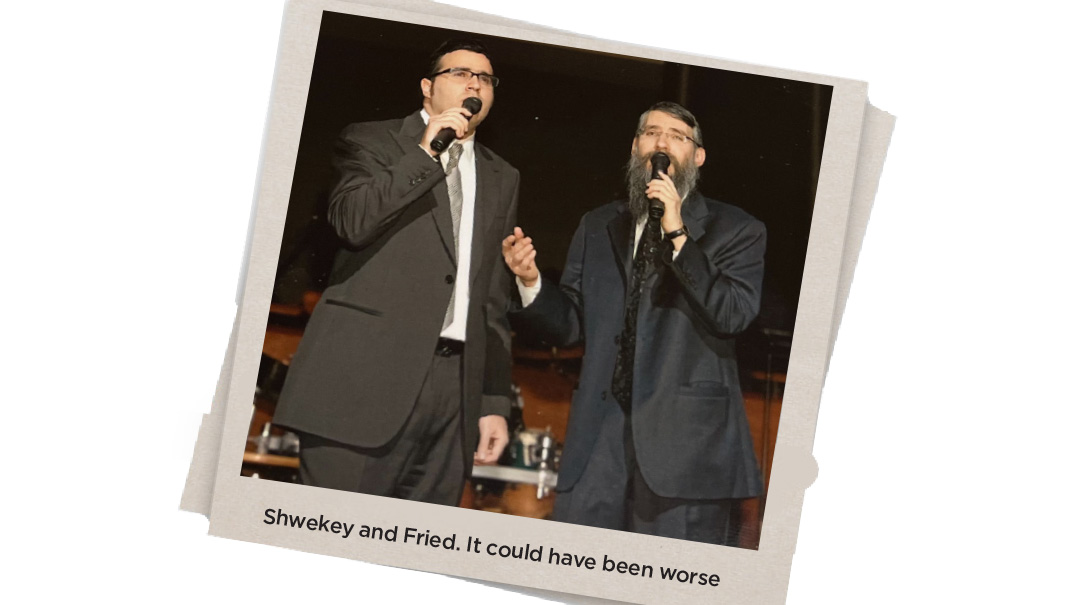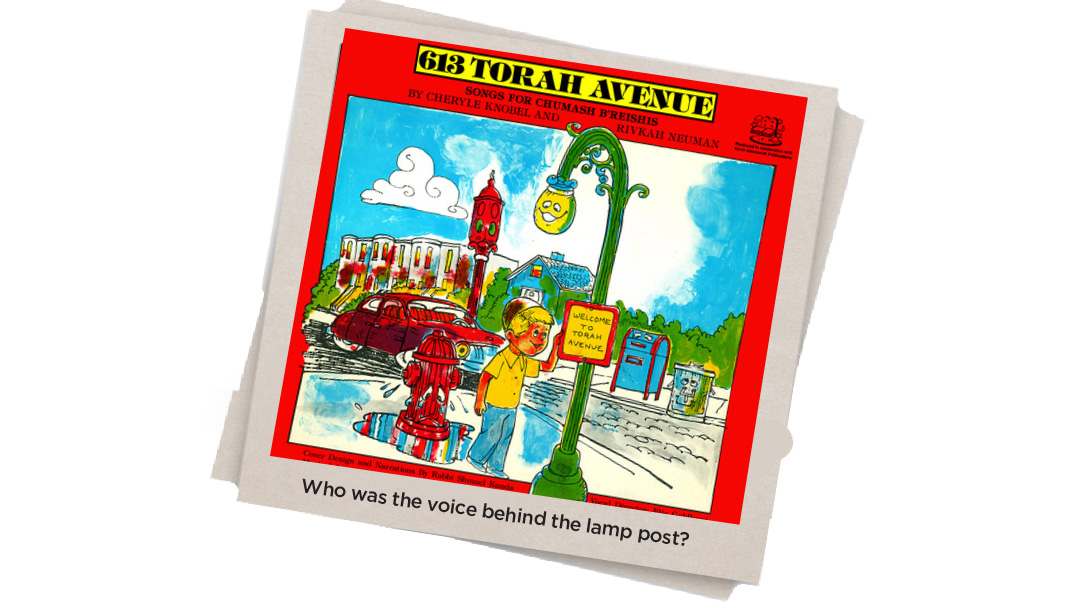The Niggun Lives On

“You have a tremendous talent of neginah, and you would be wise to use it to lift people up and bring them closer to Yiddishkeit”

Next week, 22 Tammuz, marks the 45th yahrtzeit of the Melitzer Rebbe of New York, the well-known baal menagen Rav Yitzchok Horowitz ztz”l. When Reb Yitzchok was a young boy in the Galician town of Melitz around the turn of the 20th century, his father, Rav Naftali, the rav and rebbe of the town, called him over and told him, “You have a tremendous talent of neginah, and you would be wise to use it to lift people up and bring them closer to Yiddishkeit.”
Reb Yitzchok took his father’s words to heart. A few years after his father was niftar in 1915, he left Poland and came to America with his young wife, first settling on the Lower East Side.
His voice and his musical compositions impacted others in an unforgettable way. In 1943, three days before Yom Kippur, over 400 rabbanim traveled to Washington, DC and marched to the steps of the Capitol in the famous Rabbi’s March, demanding that the Roosevelt administration do something to help save the Jews of Europe. Among those rabbanim was a younger Rav Moshe Feinstein, RavYosef Dov Soloveitchik, the previous Boyaner Rebbe, and so many others. The most moving part of the march was when the Melitzer Rebbe sang “Kel Malei Rachamim” and united this holy group of rabbis in prayer.
In 1954, the Rebbe traveled to Eretz Yisrael for the fourth Knessiah Gedolah. During that week, he was invited to a demonstration in the area of Jerusalem’s Kikar Shabbos in protest of anti-religious government actions. The crowd got so large that it spilled over onto Rechov Yaffo. At that point, the Rebbe led the entire crowd in his most famous composition. The rousing niggun and words from Tehillim — “Omdos hayu ragleinu, beshe’arayich Yerushalayim” — carried the swelling crowd in song.
The Rebbe traveled for many a Shabbos to Lakewood, New Jersey, where there would be a Melitzer reunion at the Bodner Hotel. He was always a guest of Rav Aharon Kotler at Shalosh Seudos. It was known that Rav Aharon looked forward to those visits, which would invariably include the Rebbe singing his classic repertoire, capped off with “Omdos Hayu.”
In the early 60s, the Rebbe moved from the Lower East Side to the Upper West Side, to a shtibel on West 90th Street (in his final years he moved to Boro Park). The Rebbe was known for his stringency when it came to kashrus, so he never drank milk in America, until there was access to chalav Yisrael. The older grandchildren still remember how long it took for him to kasher the house before Pesach to his satisfaction.
It was at that time that the Rebbe met with Chazan Dovid Werdyger, and they collaborated on a record of Melitz niggunim (read: the Rebbe’s original niggunim).
That album — Melitzer Chassidic Zemiros — was arranged by Yaakov Goldstein and contained hit after enduring hit. Songs like “Yismechu Bemalchuscha,” and “Kadshainu” (which MBD sang on Just One Shabbos), “Kol Yisrael,” which the Rebbe would sing at all the weddings of his children and grandchildren, “Keil Adon,” “U’veyom HaShabbos (“U’veyom uveyom uveyom HaShabbos…”),” and of course, “Omdos Hayu.”
Trivia: There are four Suki & Ding albums that have a part of “Omdos Hayu” in them. As a hint, one was on MBD’s V’chol Ma’aminim, one was a small musical addition on the Just One Shabbos album, one was sung by Yeedle Werdyger on one of our All Star albums, and the last one was on Chassidic Classics.
The Rebbe was one of many children, most of whom perished in the Holocaust, including his brother Rav Elimelech Hy”d, the Melitzer Rebbe in Poland. Rav Elimelech had also composed many memorable niggunim, some of which are still sung today. They were compiled into an album many years later called Melitzer Oneg Shabbos, sung by MBD and his father, Chazan David Werdyger. The most well-known is “Mimkomcha,” still a popular choice for Kedushah on Shabbos morning and often used for “Kol Mekadesh” on Friday night.
Tragedy touched the Rebbe on US shores as well, when his daughter Raizel Sara (Rose) and her son Naftali were killed in a car crash on the way up to the mountains in 1966. The Rebbe was never the same after that tragedy, until his petirah twelve years later in 1978. His three granddaughters are Rivi, who married Reb Chaim Raitzik of Chicago; Miral, who married Reb Dovid Simcha of Detroit; and Chumi, who married someone who plays a major part in my life: my good friend and longtime partner, Suki Berry.
My friend Reb Dovid Retter, who davened with the Rebbe on the West Side, remembers how one Motzaei Shabbos of Selichos, the shul was so crowded that the people overflowed onto the street. Many mispallelim stood outside and davened, but they didn’t mind. The Rebbe’s booming voice resounded all around and lifted the crowd — tangibly honoring his father’s advice from decades past.
Yehi zichro baruch.
(Originally featured in Mishpacha, Issue 968)
Oops! We could not locate your form.







